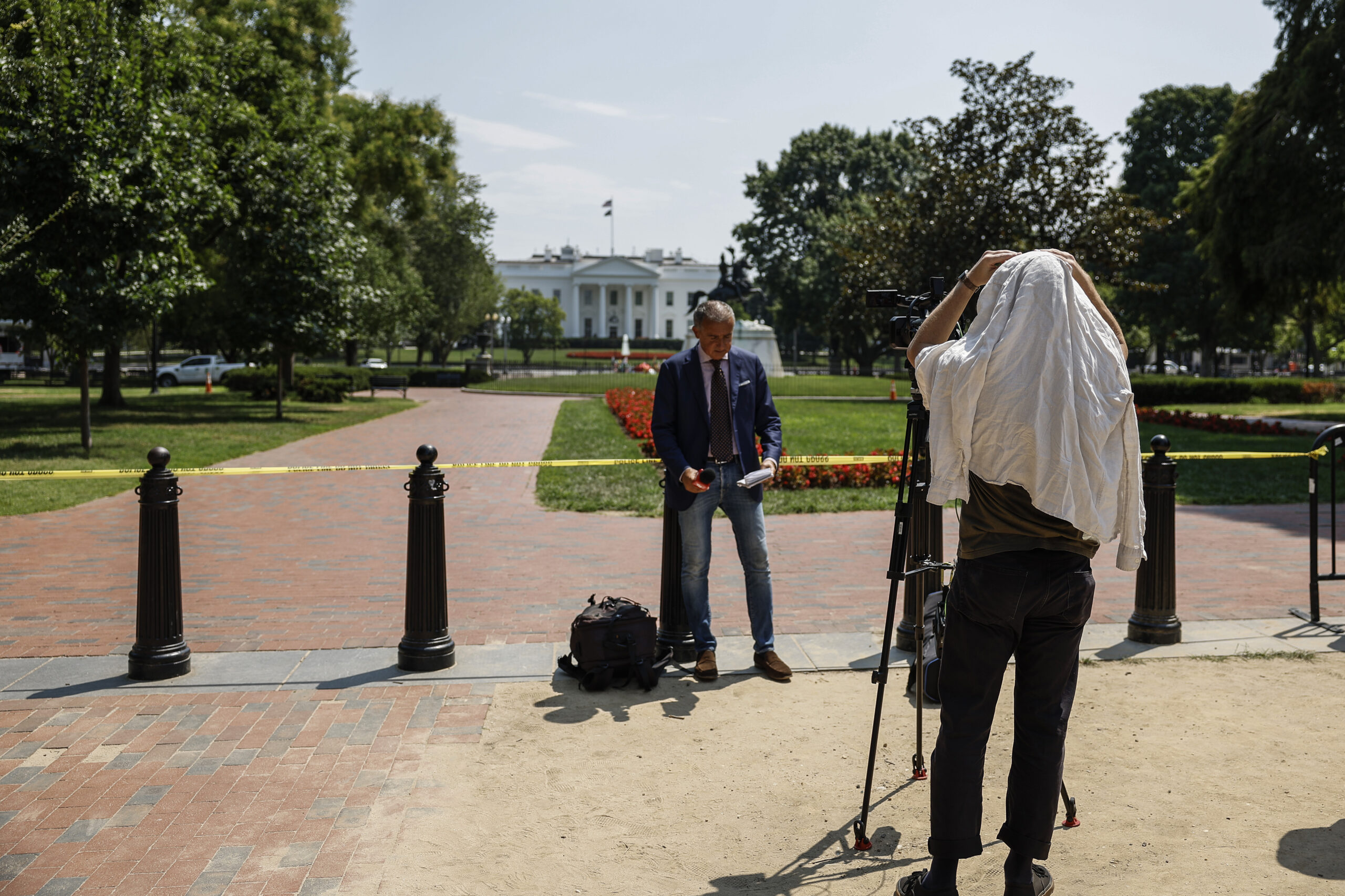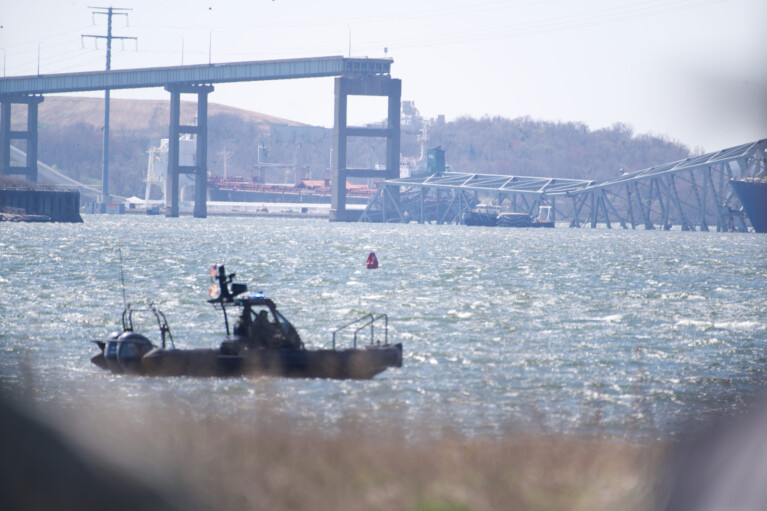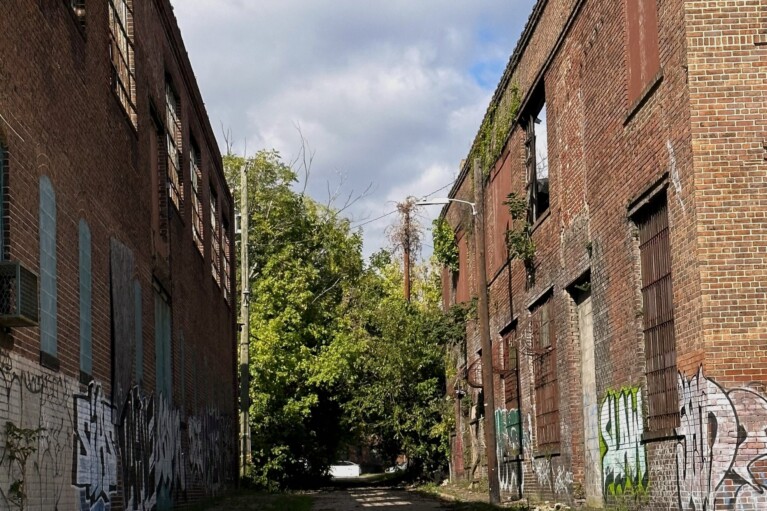As extreme heat sweeps the U.S., Biden warns that states must act to protect workers

With many parts of the country gripped by extreme heat, President Joe Biden said Thursday his administration would target states that don’t offer workers heat protections and would direct millions of dollars to water projects and improved weather forecasting.
In a live address, with the mayors of Phoenix and San Antonio joining by video, Biden said summer heat waves are affecting more than 100 million Americans. The record heat, smoke from wildfires and other natural disasters make it impossible to deny that the climate is changing, Biden said, calling the climate crisis “an existential threat.”
“Even those places that are used to extreme heat have never seen it hot as it is now for as long as it’s been,” Biden said. “Even those who deny that we’re in the midst of a climate crisis can’t deny the impact extreme heat is having on Americans.”
The heat this month has broken several records, both worldwide and locally in places like Phoenix, which on Wednesday reached its 27th straight day of hitting at least 110 degrees.
A dangerous heat wave for a large stretch of the country is expected to continue and heat index values in Maryland are expected to approach 105 to 110 degrees on Friday before cooler weekend temperatures arrive, according to the National Weather Service Weather Prediction Center in College Park.
Scientists say it’s impossible to trace any particular weather event to human-caused climate change, but the trend — the past eight years are the eight hottest years on record, according to the World Meteorological Organization, with 2023 on pace to become the hottest ever — is undeniably linked to a changing climate.
Heat causes more deaths in the United States than any other extreme weather, according to the National Weather Service.
Biden said he has asked acting Labor Secretary Julie Su to step up enforcement and inspections in industries such as agriculture and construction where workers are outside and at higher risk of heat-related problems.
Biden also directed the Labor Department to issue a heat hazard alert that clarifies the legal protections workers have under federal law to protect themselves from heat exposure.
After a heat wave in 2021, the department began the rulemaking process for a federal heat-protection standard.
“We should be protecting workers from hazardous conditions, and we will,” he said.
States that don’t offer their own heat protections for workers would see Biden “calling them out,” the president said. Some states don’t even require that workers are provided water breaks, which is “outrageous,” Biden said.
Currently, only three states — California, Oregon and Washington — have laws that require heat breaks for outdoor workers, according to a recent Stateline report.
Maryland passed a bill in 2020 requiring a new rule on heat protections, but the standards are yet to take effect after initial proposed regulations were viewed by advocates and lawmakers as too weak.
“As urgent as it is to put heat stress regulations in place, it’s important to have good ones in place,” Del. Lorig Charkoudian (D-Montgomery), who championed the bill, told Maryland Matters in June.
Finalizing the regulations is “front of mind for the newly appointed Commissioner for the Division of Labor and Industry,” a Department of Labor spokesperson told Maryland Matters in June. “Leadership within the Maryland Department of Labor is working internally to determine the next steps in the process, which will maximize input and involvement from all stakeholders.”
Federal dollars available
Biden listed federal resources that have been spent or are available to address issues caused by heat.
The Interior Department will also spend $152 million from the 2021 infrastructure law to build water storage facilities and improve climate resiliency in Colorado, Washington and California.
And the National Oceanic and Atmospheric Administration will spend $7 million from Democrats’ 2022 climate, tax and social policy law to improve weather forecasting.
Biden also outlined longer term actions he’s supported, including provisions in laws he championed that provide aid to local governments.
The $1.9 trillion COVID-19 relief and stimulus law that passed in the early days of his term helped states and cities promote energy efficiency and open cooling centers, he said. And the $1.2 trillion infrastructure law included funding to upgrade electric grids to become more resilient, he said.
The administration is also offering direct aid to local government, Biden said. The U.S. Forest Service has provided $1 billion in grants for local communities to plant trees and the Housing and Urban Development Department has spent billions to make buildings more energy efficient, he said.
Biden repeated throughout the 20-minute event that the federal government had funding available for local governments to address heat, and urged local leaders to directly contact the White House if they had issues receiving assistance.
Phoenix on climate front lines
Phoenix Mayor Kate Gallego told Biden she was grateful for help from the federal government, saying that the current heat wave has been difficult for the city’s residents to endure.
“Phoenix is known for heat,” Gallego said. “We have relentless summer heat followed by beautiful months of weather.
“But right now, this summer has really been unprecedented … In Phoenix, it’s taking a real toll on our community. We feel like we are very much on the front lines of climate change.”
Congress should let the president declare a heat disaster, Gallego said. That could unleash more aid from the federal government, including from Federal Emergency Management Administration grant programs, she said.
Staying safe in the heat
Gov. Wes Moore (D) this week urged Marylanders to take precautions in the extreme heat.
The state recorded its first heat-related death of the year earlier this month.
To cope with hot weather, the Department of Health encourages residents to “take it easy outside” and arrange physical activities for mornings and evenings when temperatures are lower.
Other safety tips include drinking plenty of water, while avoiding alcohol, caffeine and overly sweetened beverages. The health department also encourages wearing sunscreen and staying in the shade when possible.
Children and pets should not be left in a car “for any amount of time during hot weather, even with the windows cracked,” the health department said.
While anyone can experience heat-related illnesses, children under 5 years old, those over age 65 and people with chronic illnesses are at the highest risks.
“We remind Marylanders to take precautions to avoid any heat-related illnesses during this extreme heat episode and throughout the rest of the summer. Stay indoors or visit a cooling center and drink plenty of water,” Maryland Department of Health Deputy Secretary for Public Health Services Dr. Nilesh Kalyanaraman said in a statement this week. “Also, be sure to check on family, friends and neighbors who may be vulnerable to heat.”
Those in need of a cool location can contact their local health department or call 211 to find the nearest cooling center.
Danielle E. Gaines contributed to this report.




 Creative Commons Attribution
Creative Commons Attribution